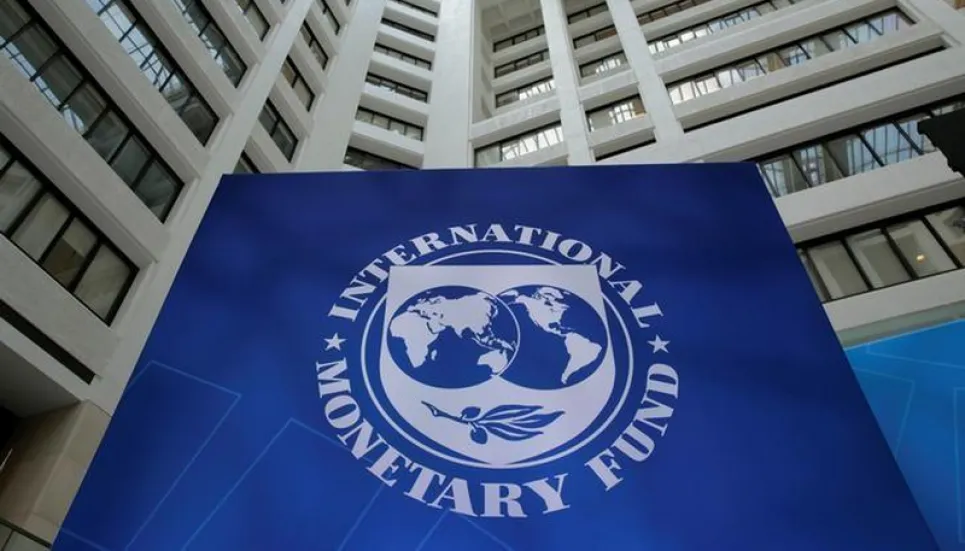
The International Monetary Fund (IMF) and Bangladesh have reached a staff-level agreement on the policies needed to complete the second review of programmes supported by the global lender’s Extended Credit Facility (ECF), Extended Fund Facility (EFF), and Resilience and Sustainability Facility (RSF).
The staff-level agreement is subject to approval by the IMF Executive Board, which is expected in the coming weeks. Upon the board’s approval, Bangladesh will have access to $1.15 billion in financing, according to an IMF press release issued on Wednesday.
It said that Bangladesh has adopted some critical reforms to address macroeconomic imbalances, including the realignment of the exchange rate, the adoption of a crawling peg regime, and the full liberalisation of retail interest rates.
An IMF mission team led by Chris Papageorgiou, head of IMF's Development Macroeconomics Division, visited Dhaka between April 24 and Wednesday to discuss economic and financial policies in the context of the second review of the ECF, EFF and RSF.
After visiting Bangladesh, Papageorgiou in a statement said that completion of the second review will make available SDR704.70 million (about $932 million, equivalent to 66 per cent of quota) under the ECF/EFF and SDR166.68 million (about $220 million, equivalent to 15.6 per cent of quota) under the RSF.
The authorities have made significant progress on structural reforms under the IMF-supported programme, including the implementation of a formula-based fuel price adjustment mechanism for petroleum products, he said.
“Nonetheless, larger-than-expected spillovers from tightening of global financial conditions, and still elevated international commodity and food prices, coupled with domestic vulnerabilities, has led to persistently high inflation and declining foreign exchange reserves. This has exacerbated pressures on the economy and heightened the complexity of macroeconomic challenges,” he added.
Papageorgiou continued, “Against this backdrop, we welcome Bangladesh Bank’s bold actions to realign the exchange rate and simultaneously adopt a crawling peg regime with a band as a transitional step toward greater exchange rate flexibility to restore external resilience.”
Following the liberalisation of retail interest rates, additional tightening of monetary policy should help alleviate any inflationary pressures resulting from the exchange rate reform. Fiscal policy should support these monetary tightening efforts through revenue-based consolidation. If external and inflationary pressures intensify, the authorities should stand ready to tighten policies further, he said.
He said the macroeconomic outlook is expected to gradually stabilise as policy actions start to take hold. Real GDP growth is projected to moderate to 5.4 per cent in FY2023-24 owing to the ongoing import compression and policy tightening. However, it is anticipated to rebound to 6.6 per cent in FY2024-25 as imports rebound and foreign exchange pressures ease.
Inflation is projected to remain elevated at approximately 9.4 per cent (year-on-year) in FY24 but is anticipated to decline to around 7.2 per cent in FY25, on the back of the continued tighter policy mix and projected lower global food and commodity prices, Papageorgiou added.
Considering Bangladesh’s low tax-to-GDP ratio, it is imperative to prioritise sustainable revenue generation to bolster investments in social welfare and development initiatives. To this end, tangible tax policy and administrative measures should be incorporated into the FY25 budget to augment tax revenues by 0.5 per cent of GDP, he said in the statement.
“At the same time, a medium- and long-term revenue strategy, with an accompanying implementation framework, should guide future reforms. Reducing subsidies, improving expenditure efficiency, and managing fiscal risks will allow for additional spending on social safety nets and growth-enhancing investment,” he said.
Papageorgiou stressed that building resilience to climate change will help mitigate macroeconomic and fiscal risks. Ongoing efforts to strengthen institutions and enhance spending efficiency would help meet climate objectives and mobilise climate finance, particularly from private sources.
At the same time, the government should prioritise climate-responsive fiscal management reforms and undertake green and resilient infrastructure investment. Better management of climate-related risks will enhance financial sector resilience as well, he said.
During its visit, the IMF team held meetings with State Minister of Finance Waseqa Ayesha Khan, Bangladesh Bank Governor Abdur Rouf Talukder, and other senior government and central bank officials. The team also met with representatives from the private sector, think tanks, bilateral donors, and development partners. The team was set to leave Dhaka on Wednesday.
The IMF board approved the $4.7 billion loan to be disbursed in seven instalments over three and a half years to Bangladesh in January last year and set several conditions. Bangladesh, so far, has received two instalments after meeting nearly all conditions, except those related to the forex reserves.
The third instalment is due in June, following a review of compliance with loan conditions up to December. Bangladesh received the first instalment of $447.8 million in February 2023 and the second instalment of $681 million in December 2023.